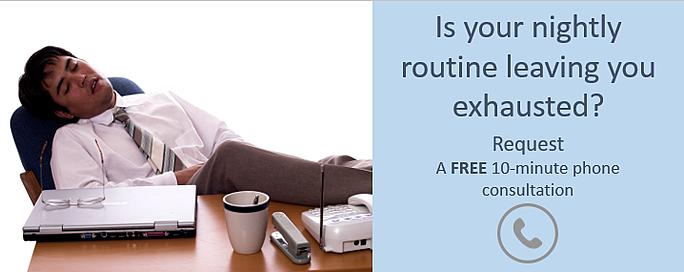If you’re having trouble sleeping, you’re not alone. According to a recent survey, 68% of Americans said that they struggle falling asleep at least once a week. Often, your behaviors in the few hours before bedtime can have a big impact on your sleep quality. Here are 10 tips to create a bedtime routine that promotes restful sleep.
- Avoid Consuming Caffeine at Night
If you’re in need of a pick-me-up in the evening, stay away from caffeine. Consuming caffeine decreases sleep quality because it prevents the release of melatonin, a hormone involved in the sleep-wake cycle and circadian rhythm. A recent study found that consuming caffeine six hours before bed can reduce sleep time by one hour. Therefore, it’s best to cut out caffeine about six to seven hours before bedtime. If you’re feeling tired throughout the day, consider taking multi vitamins, exercising or drinking more water. These are simple solutions to feeling fatigued that are often overlooked.
- Practice Meditation
You’ve probably heard about the many benefits of meditation before, so why not give it a try? Meditation is an ancient practice that’s been scientifically shown to have many positive effects on both physical and mental health, and sleep quality is no exception.
One study found that adults who practiced meditation for six weeks experienced less fatigue during the day and fewer insomnia symptoms at night. This is because meditation can increase melatonin, reduce heart rate and lower blood pressure. Because the main goal of meditation is to create a deep state of relaxation, it’s an ideal bedtime activity that’ll let your brain know you’re ready to sleep.
- Stay Away From Vigorous Exercise
Although exercising regularly can improve sleep quality, engaging in a vigorous workout before bed can actually do the opposite. Strenuous exercise before bed has been shown to increase your body temperature and heart rate, which makes it harder for your body to return to its resting state and allow you to fall asleep. If you still want to exercise, try a light workout like yoga, stretching or even taking a short walk. However, even if you’re engaging in light exercise, it’s best to finish at least two hours before bed to allow your body to wind down.
- Turn Off the TV
Catching up on the latest episode of your favorite show before bed can be tempting, but it may be interfering with your sleep quality. Numerous studies have shown that the blue light emitted by your TV or smartphone blocks your body’s melatonin production, which interferes with its ability to prepare for sleep. Although blue light increases attention and reaction times, which can be beneficial during the day, this can prevent you from getting a good night’s rest.
- Relax Your Muscles
Relaxation techniques are a great way to get your body to release melatonin and prepare for sound sleep. One type of relaxation technique, known as progressive muscle relaxation, has been shown to effectively promote sleep and even control stress and anxiety, which may be contributing to your poor sleep quality.
To practice this technique, slowly tense a specific group of muscles, such as your hands, and hold that tension for about five seconds. Then, release the tension while you’re exhaling, and relax for the next 10 seconds. Move onto another muscle group and repeat this process. Progressive muscle relaxation has been shown to promote physical and mental relaxation, both of which can improve sleep quality.
- Eat a Light Meal
Consuming a heavy meal before bed can disrupt your sleep, as your body will raise its metabolism in order to digest the food. In addition to its negative effects on sleep quality, eating a heavy meal at night can cause acid reflux or heartburn. Even if you don’t normally experience digestive discomfort after eating a large meal during the day, lying down after a heavy meal without giving your body time to digest can lead to indigestion. This can also cause you to wake up in the middle of the night, further disrupting your sleep. If you have a case of the late-night munchies, try snacking on something healthy and light such as yogurt, nuts or a banana.
- Turn Down the Thermostat and Lights
A recent poll found that room temperature was one of the most important factors affecting sleep quality. Because your body is wired to lower its temperature in the evening, the ideal bedroom temperature is about 65 degrees Fahrenheit. Keep in mind that this temperature won’t work for everyone, but it’s best to keep the temperature in the 60 to 67 degree range to achieve the best sleep.
On a similar note, turning down the lights can get your brain ready for sleep. Going directly from a bright room to a pitch-black room can be a shock to your system and cause your body to take much more time to fall asleep. Try creating a dim sleeping space to keep your circadian rhythm on track.
- Take a Shower or Bath
Taking a shower or bath a couple of hours before bed is a great way to relax your body. Although it may seem counterintuitive, taking a warm shower or bath actually decreases your body’s temperature, which can make it easier for you to fall asleep at night. Showering can also relieve muscle tension, which is a great way to unwind before bed. If you want to elevate the experience, dim the lights, put on some relaxing music and light a candle. Some calming scents that have been shown to promote sleep are lavender, chamomile and bergamot.
- Write in a Journal
If you’re feeling stressed after a long day and finding it difficult to unwind, writing in a journal is a great way to process your emotions. Journaling has been shown to reduce stress, clear the mind and let go of negative thoughts that may plague you at night. The good news is that there are no rules when it comes to journaling. Simply taking 10 to 15 minutes to write down what’s been weighing on your mind recently is enough to benefit your well-being and improve your sleep quality.
- Choose a Consistent Bedtime
Because your brain starts to wind down a few hours before bedtime, it’s important that you stick to a specific bedtime. This will train your brain to naturally feel tired when it’s nearing bedtime, therefore allowing you to fall asleep more easily.
If you’ve been having trouble sleeping lately, it’s time to re-evaluate your bedtime routine. Swapping out your unhealthy habits with these 10 helpful tips can help you get the good night’s sleep that you’ve been craving.
If you live in Alaska and you would like to speak to a sleep specialist about improving your bedtime routine, please click the link below.












